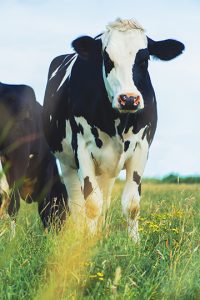 Organically grown food has become more and more popular. One of the reasons is the potential for hormones in food. Farming has changed dramatically in the past 100 years. Farmers now use new techniques to create higher egg or milk production or to grow faster to maturity. Salmon, for instance, has been genetically modified to grow twice as fast as their counterparts. It took 20 years to get the right to sell these fish from the FDA. While the FDA said they were safe in 2012, there’s still debate whether this genetic change that increased the hormones in the fish or the hormones given to other animals are safe.
Organically grown food has become more and more popular. One of the reasons is the potential for hormones in food. Farming has changed dramatically in the past 100 years. Farmers now use new techniques to create higher egg or milk production or to grow faster to maturity. Salmon, for instance, has been genetically modified to grow twice as fast as their counterparts. It took 20 years to get the right to sell these fish from the FDA. While the FDA said they were safe in 2012, there’s still debate whether this genetic change that increased the hormones in the fish or the hormones given to other animals are safe.
Farmers feed cows’ hormones to increase their size and boost production using less feed.
Unless you purchase organic meat, the chances are, you’re getting a dose of hormones every time you eat a burger. Eighty percent of cows in the US have had some type of hormone injection, whether it’s for increased milk production or to bulk up their size. The amount may be small, but the exact effect on humans still needs further study. Many foods from the US have been banned in Europe due to the hormones they may contain. Milk from dairy cows treated with BGH or rBST hormones isn’t allowed in the European Union. Meat from cows and pigs that are given ractopamine, which increases growth and lean muscle is also banned by Europe, Russia, and China.
The Food and Drug Administration says most hormones are natural and not a problem.
Animals are often given at least one of three common hormones, estradiol, testosterone, and progesterone. These are considered natural since they’re found in humans. Other hormones given to cattle include Trenbolone, melengestrol, and zeranol, which are chemically created especially for animals. While the FDA says the amount isn’t substantial, so they aren’t harmful, there’s still an ongoing debate as to their safety.
Some studies show reasons for concern.
Recombinant bovine growth hormone—rBGH—increases milk production. While it doesn’t affect people directly, it does indirectly. It can increase IGF-1, a growth factor that’s similar to insulin when people consume rBGH. The IGF-1 mimics human growth factor. Increased amounts in the body also increase the risk of prostate, breast, and other forms of cancer. It also increases the risk of diabetes.
- Sex hormones found in cattle may take their toll on children. The hormones are primarily estrogen. Some scientists believe that ingesting the increased hormone may account for the earlier onset of puberty in children today.
- The use of rBGH has dramatically reduced since public demand has changed. People want more meat products that are hormone and antibiotic-free. The demand has grown substantially, which will ultimately change farming practices.
- Few long-term studies exist, so the effect of hormones in milk and meat products on children is not fully understood. Adverse effects may be delayed until their adult years, including on children whose mothers drank milk containing rBGH while they were pregnant.
- If you’re concerned about antibiotics or hormones in your food, opt for animal products from pastured animals. Studies show that milk and meat from pastured animals have heart-healthy benefits and eggs from pastured hens are more nutritious.
For more information, contact us today at Next Level Fitness
